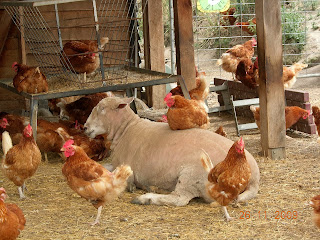Will you have NITRATES with That?
Recent US Research implicates the use of nitrogenous chemicals in agriculture and food processing in an increased incidence of illness like type 2 diabetes. Simon Webster reports.

Processed food and the use of nitrogen fertilisers in conventional agriculture may be to blame for the rise in several diseases including Alzheimer's, Parkinson's and diabetes, scientists say.
Researchers at Rhode island Hospital in the US found strong parallels between human exposure to nitrates, nitrites and nitrosamines ( all nitrogenous chemical compounds) and increases in the death rates of these diseases.*
 These compounds have long been known to be harmful to human health. they are sound in processed and preserved food, including some cheese products, beer, and cured meats such as bacon, as well as drinking water and vegetables - especially green leafy ones. "We have become a 'nitrosamine generation'", said the study's leader, Susanne de la Monte, referring to the carcinogenic compound that is formed when nitrites meet amines, a common type of protein.
These compounds have long been known to be harmful to human health. they are sound in processed and preserved food, including some cheese products, beer, and cured meats such as bacon, as well as drinking water and vegetables - especially green leafy ones. "We have become a 'nitrosamine generation'", said the study's leader, Susanne de la Monte, referring to the carcinogenic compound that is formed when nitrites meet amines, a common type of protein."In essence, we have moved to a diet that is rich in amines and nitrates...We receive increased exposure through the abundant use of nitrate-containing fertilisers for agriculture "
"Not only do we consume them in processed foods, but they get into our food supply by leaching from the soil and contaminating water supplies used for crop irrigation, food processing and drinking."
Nitrogen fertiliser consumption in the US increased by 230 per cent between 1955 and 2005, researchers said, with is usage doubling between 1960 and 1980, just before the onset of and epidemic of these insulin-resistant diseases.
The researchers found that sales of fast food and processed meats increased more than eight fold from 970 to 2005.
Cellular damage
At the cellular level, nitrosamines became highly reactive, altering gene expression and causing DNA damage. Researchers said those that occurred with ageing, Alzheimer's , Parkinson's and type 2 diabetes.
"All of these diseases are associated with increased insulin resistance and DNA damage," de la Monte said. "Their prevalence rates have increased radically over the past several decades and show no sign of plateau. Because there has been a relatively short time interval associated with the dramatic shift in disease incidence and prevalence rates, we believe this is due to exposure-related rather than genetic etiologies."
According to the researchers, chronic lo-level exposure to nitrosamines could be enough to explain the epidemics of these diseases.
Solutions might include eliminating the use of nitrites and nitrates in food processing and preservation, as well as in agriculture. de la Monte said.
In Australia the use of nitrogen fertilisers tripled between 1955 and 2005, says organic group Biological Farmers of Australia. Organic standards ban the use of synthetic nitrogenous compounds in the paddock and in food processing
"Recently released information from the UK has confirmed that organic food has lower nitrogen levels than non-organic food, which is a real advantage for organic consumers.," said BFA nutritionist Shane Heaton *
*for a full report see www.j-a;z.com/issues/17/vol17-3.html
From Organic Gardener November/December 2009 Simon Webster








